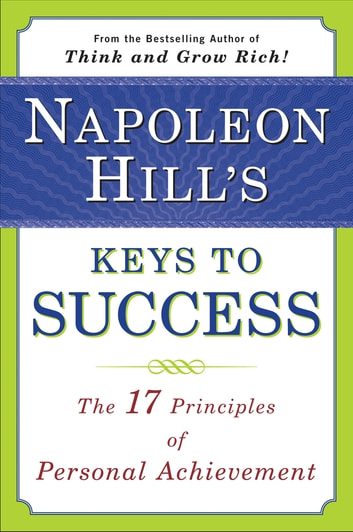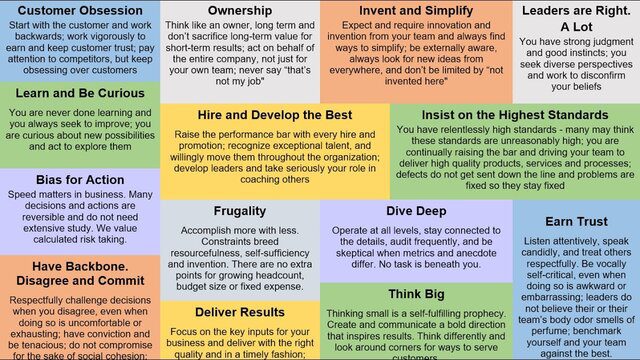Only those who will risk going too far can possibly find out how far one can go. – T. S. Eliot
Going the extra mile means doing more than is expected, required or anticipated. In the business world, it means under-promising and over-delivering, paying attention to details, obsessing about customer satisfaction and getting things done. Going the extra mile is a great analogy, especially when you run a lot like I do; it means pushing yourself to go one extra mile while running, do one more rep in the gym, one more lap in the swimming pool, one more practice session before that all important presentation.
One of the principles in Napoleon Hill’s Keys to Success: The 17 Principles of Personal Achievement 1 is going the extra mile.

Render more and better service than you are paid for, and sooner or later you will receive compound interest from your investment. It is inevitable that every seed of useful service you sow will sprout and reward you with an abundant harvest.
Going the extra mile is not the sort of principle that can be put into practice in a few easy steps. Instead it is a state of mind that you must develop, so that it is a part of everything you do. There is a subtle, but powerful, mental attitude connected with it. The stories that follow will demonstrate that attitude and show you the concrete benefits it brings.
Remember, your best recommendation is the one you give yourself by rendering superior service in the right mental attitude.
“Going the extra mile means that you strengthen your ability to do your job and to do it well. Carrying out your tasks in a state of mind focused on providing the best service possible in the best possible attitude reinforces your skills. By imposing systematic self-discipline, you understand the process better every time, and you impress upon your subconscious the need for quality work. Remember the adage: “Strength and struggle go hand in hand.”
You should never make a presentation, design a software program, or do anything at all connected with your definite major purpose without the deliberate intention of doing it better than you have ever done it before. True, you may sometimes fail or not meet your previous standards, but the very intention of surpassing your previous best is a healthy habit that will ultimately cause you to excel.
The extra mile formula:
Q1 + Q2 + MA = C.
- Q1 is the quality of service rendered.
- Q2 is the quantity of service rendered.
- MA is the mental attitude in which it is rendered.
- C is your compensation.
“Compensation” here means all the things that come into your life: money, joy, harmony with others, spiritual enlightenment, faith, an open mind, a sense of tolerance, or anything else worthwhile that you seek.”
One company that has made going the extra mile a part of its business model is Amazon. Number one on Amazon’s Leadership Principles is an obsession with customer satisfaction. The company goes the extra mile to satisfy customers through various irresistible offers and consistency.

- Customer Obsession.
Leaders start with the customer and work backwards. They work vigorously to earn and keep customer trust. Although leaders pay attention to competitors, they obsess over customers.

In his book, Invent and Wander: The Collected Writings of Jeff Bezos 1, founder, executive chairman, and former president and CEO of Amazon, Jeff Bezos, describe the company’s approach to going the extra mile for its customers. He writes:
There are many ways to center a business. You can be competitor focused, you can be product focused, you can be technology focused, you can be business model focused, and there are more. But in my view, obsessive customer focus is by far the most protective of Day 1 vitality. Why?
There are many advantages to a customer-centric approach, but here’s the big one: customers are always beautifully, wonderfully dissatisfied, even when they report being happy and business is great. Even when they don’t yet know it, customers want something better, and your desire to delight customers will drive you to invent on their behalf. No customer ever asked Amazon to create the Prime membership program, but it sure turns out they wanted it, and I could give you many such examples. Staying in Day 1 requires you to experiment patiently, accept failures, plant seeds, protect saplings, and double down when you see customer delight. A customer-obsessed culture best creates the conditions where all of that can happen.
“At Amazon, customer obsession has made us what we are, and allowed us to do ever greater things. ”
Customer Happiness is the New Marketing 3
If your customers feel that you are taking care of them, then they’ll stick around and they’ll tell others. This is the precise way in which companies of one can compete with behemoths in their market—by out supporting them. It’s much harder to compete with bigger companies on aspects like volume, low prices, or logistics. But it’s much easier as a smaller business to compete on the personal touches—going the extra mile and treating customers like humans, not numbers. That’s a major advantage for any company of one.
It’s much easier as a smaller business to compete on the personal touches—going the extra mile and treating customers like humans, not numbers.
In The 15 Invaluable Laws of Growth 4, author John C. Maxwell advised, “Stop Doing What Is Expected and Start Doing More Than Is Expected”
“Former General Electric CEO Jack Welch calls this “getting out of the pile.” To distinguish yourself, get noticed, and advance your career, you need to do and be more. You have to rise above average. You can do this by asking more of yourself than others ask, expecting more from yourself than others expect, believing more in yourself than others believe, doing more than others think you should have to do, giving more than others think you should give, and helping more than others think you should help.”
“I like the way boxer Jack Johnson described it: “Going far beyond that call of duty, doing more than others expect, this is what excellence is all about! And it comes from striving, maintaining the highest standards, looking after the smallest detail, and going the extra mile. Excellence means doing your very best. In everything! In every way.
Meditations
- Daily Calm with Tamara Levitt – Seeds
- There is an old saying in neuroscience: “Neurons that fire together wire together” This means that the more you do something, the stronger the neural pathways become that reinforce that activity.
- Creating habits takes more than just building neural connections; what is just as important is our ability to faze out old habits.
Your mind is a garden and your thoughts are the seeds. You can grow flowers, or you can grow weeds.
Podcast
- Ep. 259: The Four-Hour Work Day – Deep Questions with Cal Newport


Comments are closed.